By Usman Aliyu
Afon, a community in Kwara state was almost thrown into a religious crisis recently, when a group of Muslims attempted to halt a plan by Mrs Falilat Modupe Abimbola, a renowned African traditionalist, to celebrate Osun festival. Afon is about 32 kilometres from Ilorin, the state capital and it is the headquarters of Asa Local Government Area, one of the five local government areas under the Ilorin Emirate.
Abimbola, popularly known as Irawo in her religious circle, had lived in the community for more than 40 years, where she married and bore four children. Born a Muslim, the 50 year-old woman, however, converted to African traditional practice, 20 years ago, due to what she described as a divine call. Since then she has lived her life consulting the gods for people and engaging in religious rites.
According to her, the journey started like a miracle when she began to receive the call, incessantly; divination came to her in dreams. Regrettably, she said, it has not been easy being a traditionalist in a community that is predominantly populated by Muslims. She claimed she has suffered discrimination, alienation and sometimes intimidation as a result of the religion she professes.
Recent in the series of such, was manifested again when the plan to celebrate the festival on January 5, came to the public notice with the group of non-traditional adherents insisting that it would not hold.
“I face some challenges in this community. I have been in Afon for more than 40 years and I have built two houses here. But sometimes, as you progress in life, you begin to face some challenges. My journey into this traditional practice started like a miracle, because nobody taught me or preached to me. It was a divine call and anybody can receive a call either in an Islamic or Christian way. This is where I was called.
Mrs Falilat Modupe Abimbola, Irawo, Afon
“When I was made Yeye Olosa of Kwara state (a religious title) in Ghana and I returned back, I wanted to do the coronation, alongside the osun festival; but there was this new Islamic group who just came to Afon; the group was not here before, and the members insisted that I would not do the ceremony.
“It started like a play, but later dragged to involve virtually every member of the community,” she said.
Abimbola is not the only person in this situation, as Mrs Osunfunmilayo Ajile Sulaiman, encountered a similar fate late last year, when she attempted to celebrate the same festival in Ilorin. Sulaiman, who is the Aare (President) Olomitutu Odo Gbogbo Lagbo, of the state, said some Islamic clerics waged a war that nothing of such would take place anywhere in the city, famous for Islamic activities.
Sulaiman took exception to this, claiming that everyone is guaranteed the right to religion under the 1999 Nigerian constitution as amended, so far it is not conducted in a way that infringes on the right of others.
“Everybody is expected to know that when you practise your religion, you do not disturb others. Once there is no disturbance from one side, there is supposed not to be from others too. When Muslims make calls to prayers, we show understanding that it is their own way of worshipping, same thing to Christians, who also engage in many church services. Therefore, we expect that nobody should disturb us too in the course of our religious rite. There is a proverb that one business does not forestall another.
“The level of intolerance for traditional worshippers, however, worsened in September 2022 because that is the period I celebrated the Osun festival. Government never said nobody should practise a certain religion, but members of the neighbourhood came, kicking against our plan to worship in our own way.
“Meanwhile I was born a Muslim and practised Islam before destiny prevailed and I turned to a traditional religion worshipper. I am a daughter of an Islamic cleric. My father was an Imam, leading Muslim congregation in prayers. We have a family house in Ilorin and my mother’s ancestral home is at Ita Amodu while my father’s is at Taiwo Isale,” said Mrs Sulaiman.
She said that the intimidation she experienced during the period was so tense as if she was not entitled to the religious rights that others enjoyed in the state and country at large.
“They said if they saw any osun worshipper in Ilorin, they would beat the person and tear their cloth. I asked for the reason, but no answer.
“I even said I was ready to help if it was the incident of some osun worshippers begging for alms in Ilorin. The complaint was that some people would wear white attire similar to the adherents of osun, holding brass, and divining for people in such a way that is scary, when those people never visited them for consultation. They would be telling what they did not see.
“Signposts were erected in strategic areas warning against the movement of the traditional worshippers. It was worrisome that they imposed restriction of movement on the worshippers,” she lamented.
Similarly, Comrade Bayo Fabiyi, Coordinator of the New Era faction of Odua People Congress (OPC) in Kwara state and an Ifa priest said it was not easy being adherents of religious minorities in the state.
Fabiyi decried how ifa adherents are always blackmailed in the state and portrayed them as bad elements in the society.
Kwara state is known for peace and harmony in spite of its multiethnic compositions. However, recent rising in the number of adherents of African traditional religion, particularly in Ilorin, which is regarded as the home of Islam, is obviously giving way for apprehension.
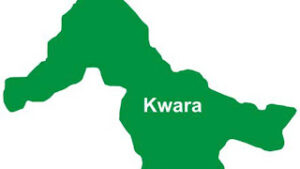
Map of Kwara State
The 1963 Nigerian population census put the percentage of Muslims in what is now Kwara State at about 77 per cent, while about 14 per cent were Christians and about nine per cent adherents of other religions. While there was no census since 1963 that gathered data on religious affiliation, Abdulganiy Abimbola Abdussalam (2012) in his study titled Muslims of Kwara: A Survey, observed that it appeared that the percentages of Muslims, Christians, and others were about the same in the state as they were in 1963.
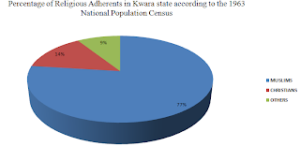
Confrontations borne out of envy, extremism – victims
Though the incident is becoming a bygone, Abimbola said, the attacks were borne out of envy and religious extremism. She said those who instigated the crisis, accused her of worshipping a river that passes through the community; an allegation, she denied.
“They launched a series of attacks against me, particularly on radio, newspaper and social media. They alleged that I worship one river in the community, which was not true. I noticed it was envy because I am now good at what I do. I have delivered many people from spiritual afflictions, which some Islamic clerics, who also indulge in traditional practices, are not happy about.
“I want to tell you that there was nobody I consulted for that was not delivered. This forms part of the reason for the attacks. They are jealous, asking when did I start, to the extent that I become a well known person on the job.
“So because I am a woman, they feel they could intimidate me. There are other traditional religion worshippers such as Ifa and masqueraders in this community and the relationship between us is cordial.
“In fact, they used to celebrate their masquerade and other festivals without any problem. It may be because I am a woman. I notice other worshippers who are men are never for once attacked or molested.
“This is a society that looks down on women, but god’s plan is beyond that,” she said.
Corroborating the claim of envy, Mrs Sulaiman, Aare Olomitutu Odo Gbogbo Lagbo of the state, said some clerics felt threatened with how people trooped to traditionalists for spiritual consultations and deliverance.
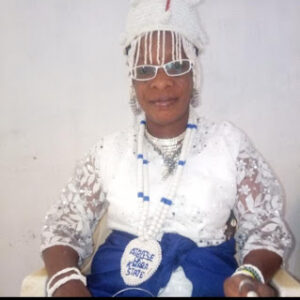
Mrs Osunfunmilayo Sulaiman, Yeye Tayese of Kwara State
“It turned out to be a case of envy. I gathered that one of the complaints was that traditional worshippers are becoming too many in Ilorin; hence it has reduced their patrons. It is envy, meanwhile, there are some popular clerics here, who are our followers too.
Comrade Fabiyi said traditionalists had only decided to maintain peace and order amidst the high level of extremism from major religious groups in the state, where he lived for years.
“Kwara is truly a state of harmony, but it is because we do not fight. The harmony and peace we enjoy here is not unique. Go to Osun, Oyo States or anywhere in the west, they do not deny anybody of his religious rights, being a Muslim, Christian or traditionalist. I was born and brought up here (in Kwara), but I lived in Lagos for years. It’s through the OPC that I came back to Kwara, we are partial in Kwara; there is supposed to be equal rights for all religious adherents.
“If anybody tells us that there are no traditional religious worshippers in Kwara, that is a big lie. Whoever that says so is a fool,” Fabiyi said.
He explained, as well, how Muslims and Christians adherents consult them for spiritual help, saying they are intolerant and are nothing, but hypocrites.
Dangers of religious extremism, intolerance
Nigeria is a secular state, prohibiting religious discrimination, as well as, the government from adopting a particular religion. Section 38 subsection 1 states that every person shall be entitled to freedom of thought, conscience and religion, including freedom to change his religion or belief, and freedom (either alone or in a community with others, and in public or in private) to manifest and propagate his religion or belief in worship, teaching, practice and observance.
Notwithstanding the provision of the law, Nigeria is usually embroiled in religious violence overtime. There have been several incidents of violence observed across the country.
According to the International Religious Freedom Reports of 2016-2019, an incidence of violence erupted in Nigeria in 2015 due to the clash between the police and the Islamic Movement of Nigeria. This incident alone resulted in the death of 349 people. This is in addition to several deaths occasioned by clashes between herdsmen and farmers in the country, which reports also linked to religious demonstration.
A recent religious crisis in Kwara state over the use of hijab in Secondary Schools resulted in the death of 1 person . This tragic occurrence where One person was killed witnessed a violent melee with several others injured.
How the dust of festival celebration later settled
Notwithstanding the opposition, the celebration of osun festival was eventually hosted in Afon, but not without the involvement of the police. Abimbola reported the matter at the Kwara state Police Command, where all parties were invited and the issue was resolved.
“We involved the state Commissioner of Police and the case was dragged to Abuja. With the help of people, we signed an undertaking and security agents were attached to us to carry out the ceremony.
“We did it without any violence. We walked freely in the community today without any hindrance. In fact some members of that group just set up an Islamic school not far from here and we all go our different ways.
Everybody has resigned to fate; we all later agreed and have come to realise that we are brothers and sisters, since we were all born here,” she said.
Unfortunately, Sulaiman was unlucky to carry out her celebration, but succeeded, however, in lifting the restriction of movement imposed on her followers in the city.
“I had to call some prominent people in Ilorin, many of whom patronise me for the restriction to be relaxed. I am recognised from Ile Ife and have a certificate in Kwara. My findings revealed that most of those who engage in street begging are Obatala worshippers, but many do not know the difference.
“Nonetheless, we thank God for what he has used us for. We have helped many pregnant women to have safe delivery and delivered many from afflictions. We are doing well except for this disturbance, she said.
Meanwhile, efforts to get the leadership of the Muslim group in Afon to speak on the issue was to no avail. Mallam Sulyman Alfulani, who is the leader of the group declined to comment when he was contacted. He said time had overtaken the matter and the group had moved on with life.
These adherents have origin in major religions
Interestingly, many of these traditionalists were either born Muslims or Christians before they changed to their current affiliations. For instance, Mrs Sulaiman, who is also the Yeye Tayese Agbaye, and Abimbola, Irawo in Afon were born Muslims; Fabiyi was a Christian. Abimbola claimed she still observed five daily Islamic prayers, fast during Ramadan and engaged in some other Islamic rites alongside the traditional religious practices. Like Sulaiman, Abimbola said she was married to a Muslim, ditto two of her female children.
“I pray a lot and despite worshipping osun, I still practise Islam. I pray five times daily and pray in Islamic way. So I combine the two. My husband is a Muslim and a civil servant and had no issue with it. Whenever I told him my experience regarding the dream and people coming for consultations, he always encouraged me.
“He said he was foretold that I would be a traditionalist, helping people to solve problems. So he was not surprised. Rather, he supports and encourages me. There is no problem whatsoever between us.
“I have four surviving children; one of them is a son while two of my daughters are married to Muslims.
For Fabiyi, he was born into a Christian family before he embraced ifa deity in spite of his father being a Christian and an elder in a church.
“As I speak with you, I was born and bred in Christian house. My father was an elder in ECWA church. My grandfather’s name was Ifabiyi and my father bore Ifabiyi too. My own name is Bayo Ifabiyi. I am now Ifa priest and you can see how things go round now and I did not do anything bad to anybody. Let there be religious tolerance in Kwara,” he said.
Where Government needs to strike a balance
While Sulaiman and Abimbola had no issue with the state government over their plight, Fabiyi blamed the government largely for the discrimination and marginalisation. He believed that the government was not protecting the religious minorities enough.
“Government is trying because I have not seen where a religious matter was taken to the government and it took sides. Government made us understand that everybody is free to profess any religion even among family members; a child can practise a different religion from the father. It’s unfortunate that some are just being deliberate about their intolerance,” said Abimbola.
She said there was a need for religious harmony, unity and cooperation in the state. Based on her understanding, she said Muslims, Christians or traditionalists, all worship the same God, but in different ways. Therefore, there shouldn’t be a reason to fight over it.
They, however, unanimously, called for the appointment of a Special Assistant on Religious Matters (Traditional religion) like it was done for Christianity and Islam.
“We are three and need three arms – Muslims, Christians and traditionalists. This is the time to recognise the traditional religious adherents and give us somebody we can relate with in government,” Fabiyi buttressed.
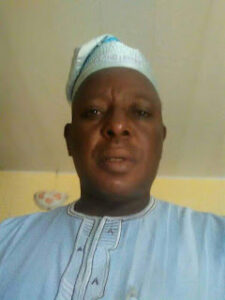
Comrade Bayo Fabiyi, Ifa Priest and Coordinator, Odua People Congress (OPC) in Kwara State
Clerics state Islamic, Christianity’s positions on coercion, religious extremism
To Lanre Badmus, a professor of Arabic and Islamic Studies, University of Ilorin, Islam is a very tolerant religion that gives room to adherents of other religions to either embrace Islam voluntarily or to practise whatever their religions may be.
Qur’an 109 verse 6, Badmus said, clearly states that “for you is your religion, and for me is my religion”, therefore, there shouldn’t be interference for peaceful co-existence in the society.
“If you look at Quran 2, which is Suratul Al Baqarah, there is where Allah says there is no compulsion in religion. If anybody makes an attempt and forces a non-Muslim to become Muslim for fear of punishment, for fear of persecution, that person is not going to get any reward; his effort is a fruitless exercise.
“In Makkah, when the Prophet (Muhammed) started his mission, there were no Muslims and there was no rancour among them. On the other hand, it was a set of the non-Muslims who decided to persecute the Holy Prophet and force him to migrate to many places, to Ta’if. Thereafter, he directed his followers to migrate to Abyssinian, the present day Ethiopia, before he finally led the Muslims to migrate to Medina.
“When he got to Medina, he met the Jews; he met the Christians and they formed a formidable community and introduced the first formal constitution to make sure you know your boundary and I know mine; you know your right and know mine and I also know your right and the limitations,” said the Islamic cleric.
The don explained that for the wars that Islam fought, they were defensive wars as Islam did not whatsoever initiate any war due to people not embracing the religion. This, he said, never happened.
According to him, in a multi-religious setting like Nigeria and Kwara state, Islam proposes the provision for peaceful co-existence. No religious organisation should use educational facilities or health institutions or use God’s given opportunity whether in the Ministry or parastatal to force people who do not belong to their religion to join them.
In a similar vein, Dr. Reuben Ibitoye, Coordinator, UNITED NATIONS-POLAC, Kwara State Branch described Kwara as multi-religious, but a secular state renowned for her age-long harmonious relationship among the various religious adherents. This, he said, was an attestation of the fact that there is one love in the state.
“The Parable of good Samaritan in one of the teachings of Jesus Christ is a pointer that we must love another person who is from another background or nationality.
“On the issue of extremism, these are the religious radicals, Christian faith does not encourage extremism of any kind.
“Kwara state must sustain her religious harmony which is known for and the government must encourage justice and equity to all and sundry.
“No religion must be placed above another, everyone must be treated equally.
“Constant interfaith dialogue with religious leaders will help to sustain already existing religious harmony,” said Ibitoye, the immediate past Secretary Christians Association of Nigeria (CAN), Kwara state branch.
He, however, called for the establishment of a directorate to always handle religious issues. This Directorate, he said, should include both the religious stakeholders where they can meet and chart a way forward.
There are equal rights for all religions – Kwara Govt.
The state Government maintained however, that Kwara is a state of harmony and the government would never place one religion above the others.
Mr Bashir Adigun, the erstwhile Special Adviser on Political Communications to Governor AbdulRahman AbdulRasaq said as much as the constitution of the country guarantees freedom of religion, each religion should respect the rights of others.
Adigun, nonetheless, said the traditional religious group would have to channel their request for an appointment to an appropriate quarters, claiming that governor was not discriminatory of any religion.
“In as much as the constitution of this land protects the right of everybody, it is advisable that anybody who wants to worship anything should do that within the confines of the law. A religious organisation cannot go to a place where they know the majority of the people in this place are dominated by a certain religion and said they want to practise their religion. That means they want to trample on the rights of others, I know the law enforcement agencies will not tolerate that.
“But as per offering advice, the governor of this state is open to all kinds of advice and suggestions. Anytime anybody wants to offer advice, they can go through the appropriate quarters,” said the governor’s spokesperson.
He, however, cautioned against a situation where some religious groups will now take their liberty excessively, saying that could lead to a breakdown of law and order and it was the duty of the law enforcement agencies to check these excesses in the interest of the common good of all
This story was produced with the support of the International Center for Journalists (ICFJ) in partnership with Code for Africa



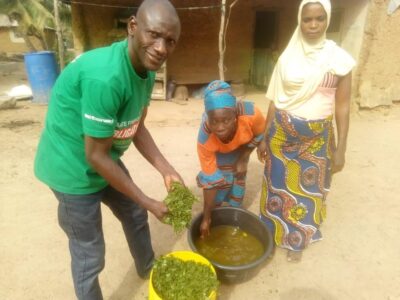
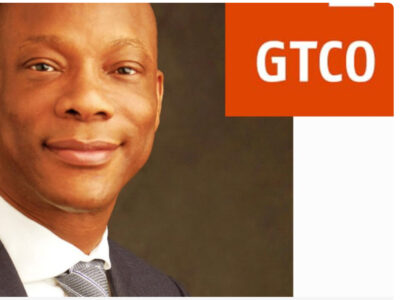
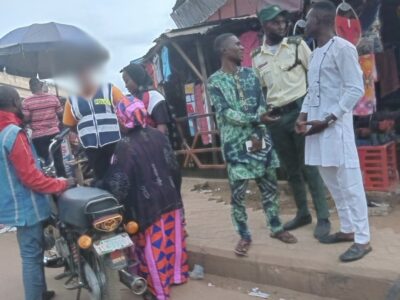


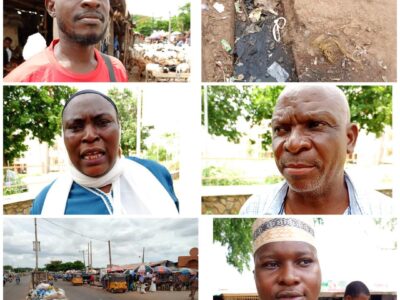

Comments